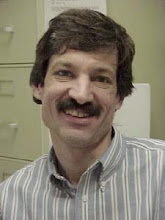Saturday, September 3, 2022
Writing Freedom Can Be Scary
Reading my W400 students’ writing collages—as always when I’ve read literacy narratives—inspires me, frustrates me, and puzzles me. I’m inspired to do even more to give students new genres to explore and to help them reflect on what writing, reading, learning, and inquiry have meant to them and could mean going forward. I’m frustrated to read about teachers who discourage and sometimes even bully students. How can someone decide to enter a helping profession and do more harm than good? How can someone choose to work with children yet not be empathetic, loving, playful, and understanding? And finally I’m puzzled by why this collage genre is hard for some students. We talk about it and I show them examples. I share my writing experience collage and a web page that talks about the collage genre and gives examples. This semester I read a chapter from a book that is in the collage style and uploaded that chapter. Some get it. As one student wrote in her writer’s statement, “I worked to be in the collage aesthetic.” And she did. But some are stuck composing a fairly traditional personal essay with an introduction, transitions, and a conclusion. And some write so little—maybe only 2-3 experiences and at most 3 pages. I think in the future I should go over the examples in detail in class: what do you notice? What do you want to emulate? I should also give them a more ambitious page limit (write 5-6 pages, or even 7-8 pages, or give a word count), or suggest they have at least 8 sections in the collage or 8 experiences they recall.
I think it was Peter Elbow who suggested the idea of a writing collage to me. It’s an assignment in his book, Being a Writer, co-written with Pat Belanoff. (Pat ought to get more attention from me instead of my fixating on my lifelong teaching mentor. I should read more by and about her!) I gave that assignment first in W131. Elbow and Belanoff present the collage as a way for beginning college writers to not worry about transitions and organization and instead (a) generate lots of writing focused on a broad theme; (b) do minimal revising and editing; and (c) reflect on their experiences with writing. Of course, what seems less demanding is more demanding for some, because years of being taught five-paragraph essays or at least very sequenced, organized pieces that have a focusing introduction with a thesis, transitions between points, paragraphs that make sub-points supporting the thesis, and a conclusion that ties it all together—those years create a mindset about school writing that is hard to let go of.
It's not unlike the multi-genre paper that Tom Romano introduced me to at an ITW conference many years ago. Students do take to the multi-genre paper, sooner or later, and usually produce interesting work. But the semester when my W131 section was mostly students interested in education as a major showed me that they could struggle with this supposedly liberating, creative genre more than other W131 students. Again, the seeming lack of structure and breaking old habits was harder than I expected. Not to make an exaggerated comparison, or to minimize the penal experience, but when someone has been in prison many years, life on the outside can be difficult. Freedom is what caged people crave, but the openness can also induce agoraphobia.
Subscribe to:
Comments (Atom)
